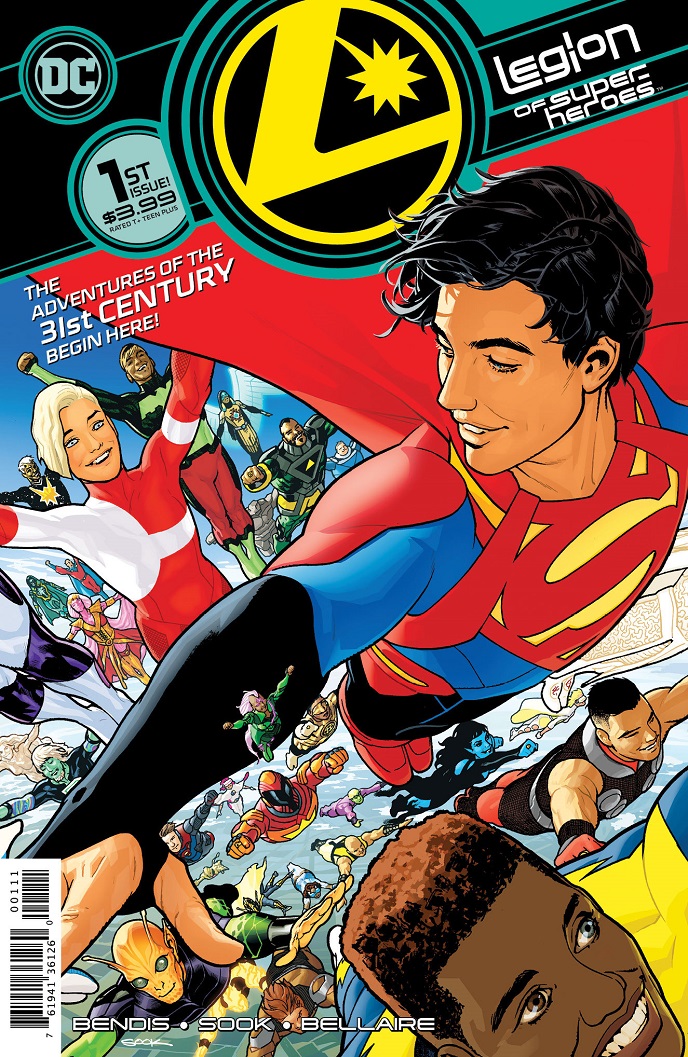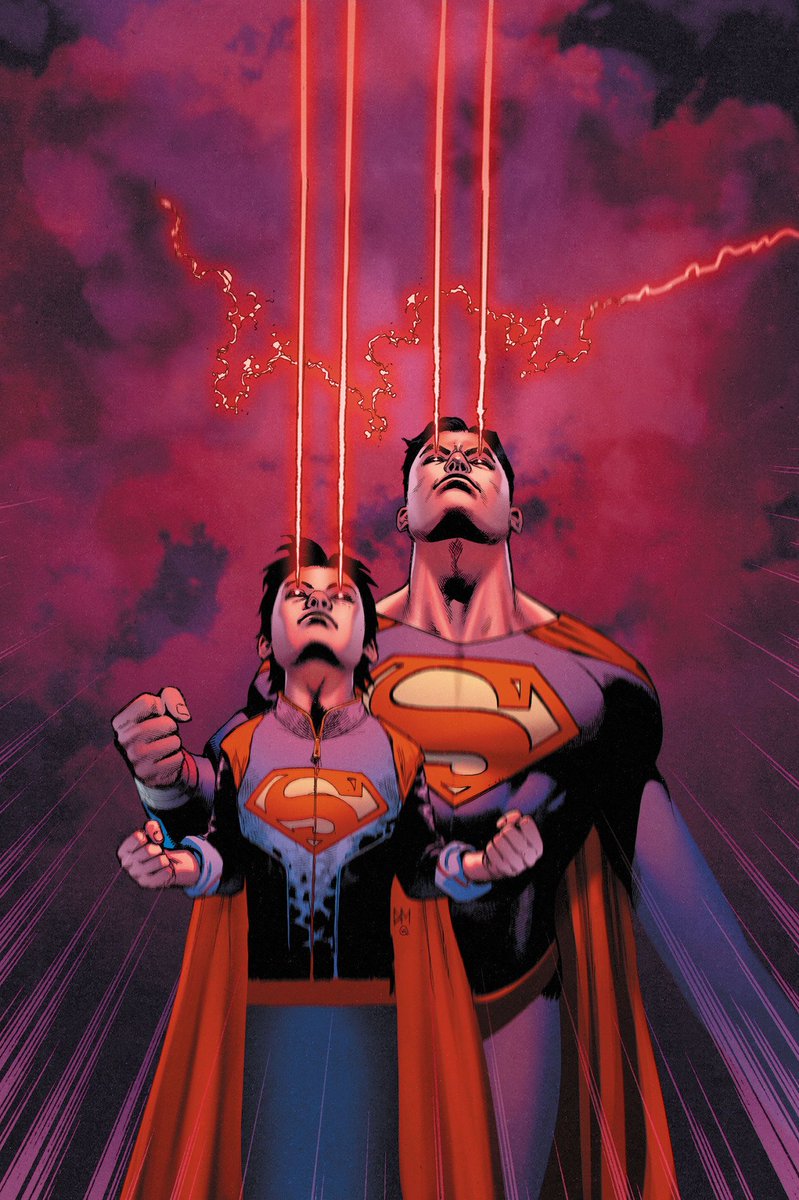I love the Legion of Superheroes.
I could — and probably will — write endless posts about how much the Legion has meant to me over the years. I could write about how fascinated I was when I first read about them, how hunting down back issues was so much fun, how fan fic filled my head with the release of each new issue.
I can’t even begin to describe how much the Five Years Later era meant to me.
I read 5YL before I got around to The Dark Night Returns or Watchmen. The Legion was dense, mature storytelling to me. It was the standard.
I loved the years that led up to 5YL. I loved the Levitz era. For all his flaws, Levitz told complex. layered stories. Every issue featured an a, b, c, d, and e plot. He knew when to go big and he knew when to go small. He was able to write about the Legion in the scope that they deserved.

Yes, like an episode of Pokemon, Levitz made sure every character in a scene said something, even if it wasn’t necessary. And yes, maybe of the characters remained rather two dimensional. But he fleshed out as many as he could, even if he had to use personality short hand for a few.
I was onboard for the first reboot, when the so-called Archie Legion was born. I loved it. I’ve never been the kind of fanboy who holds on to his beloved characters so hard that he refuses to see them any other way.
Seriously, if you’re going to jump into the Legion, the reboot version is actually a great place to start. It’s like this amazing distillation of what made the Legion great. It was also planned out incredibly well, the kind of long term planning that you just don’t see in comics anymore.
The characters were fleshed out, although the creators used their previous incarnations as a kind of shortcut to make them fully formed characters in a hurry. And why not?

Look at it this way: any new iteration of the Legion is going to bring a fair amount of long time fans. One of the easiest ways to get them enthusiastic about a new version of a team they love is by at least keeping the broad strokes of the characters. The intricacies can change, but why completely bulldoze over something that was working?
Plus, given the Legion’s extensive history, it’s possible that new fans will go digging into the back issue bins and/or digital stores to learn more. Why would creators not take advantage of that if the characters weren’t horribly offensive?
I suppose if I were to make a checklist of what’s essential in a version of the Legion, it would look something like this:
- 3 dimensional characters
- a lot of them
- multiple story lines at one time
- complicated interpersonal relationships
- hope
That’s not a lot, is it? I don’t think I’m too demanding.
The New Legion
So far this new Legion series has accomplished exactly one of those things: there are definitely a lot of characters.

And as of yet, those characters are ill defined. Not a single one has displayed enough personality to stand out. Hell, even the current version of Jon Kent has been something of a generic teen superhero.
What makes this all the more baffling to me is that a fair number of the characters come with personality short cuts. They were so clearly defined in the past that it would be easy, with just a sentence or two, to establish who they are. There’s no need for years of exploration, you can cut right to the chase.
And yet, for some reason, these personalities have been thrown out the window. I don’t need Ultra Boy to be exactly like he was, but he should be similar. The character running around the new Legion series is not him — he’s wholly brand new, or at least that’s how he’s behaving.
And I have no idea why. Jo Nah was a great character. You could claim that a number of Legion characters were two dimensional and lacked complexity, but Ultra Boy wasn’t one of them. He had a background that was unique to the team and a personality that had been fully developed.
Jo’s not the only one gets the short shrift, but he’s the worst case.
I’ve been trying to figure out how to talk about the diversity issue with the Legion. They’ve never been the most diverse team, although there have been very minor in roads made over the year.
In particular, Fabian Nicieza and Pete Woods put together a great team for the New 52 Legion Lost series, which was sadly undone the way that most New 52 books were undone (if they were even good to begin with): editorial interference. Still, the line-up was probably the first great example we’ve seen of a Legion team that’s connected to original yet pointed at the future.

It wasn’t surprising when Bendis and Sook revealed their version of the Legion and some familiar characters had been changed to diversify the team.
It was hard, however, to not immediately think about this column on the trope of black superheroes and electric powers.
It’s also hard not to notice that the effort to diversify the Legion for some reason involved getting rid of all the (albeit few) diverse characters that had been Legionnaires in their history.
Why keep say, Matter Eater Lad but not include XS? Or Kid Quantum II, who was a stand out character from the Archie Legion. What about one of my favorite Legionnaires, Invisible Kid II? Hell, Nicieza and Woods had already made Tyroc cool.
I am all for diversifying the Legion, but doing so at the the expensive of the actual non-white characters is a really weird choice. And it’s not an either or. Give me black Lightning Lad, yes, but give me XS, too.
The XS thing is particularly egregious given that, like every other writer, Bendis appears determined to connect the Legion to the 21st century DCU. XS is the perfect connection.
It’s also strange to me that this new iteration of the Legion doesn’t have any non-humanoid members. You would think, since this is no longer the 50’s, we’d see some creativity what a Legionnaire looks like.
Again, that’s not something the previous versions of the Legion were particularly good at, but there were a few strides. Gates, in particular, has a fair number of fans. I’ve always loved Quislet. And who didn’t love Tellus?
Who Are the Legion?
The concept of the Legion doesn’t fare particularly well in this reboot.
The beauty of the Legion’s origin is that three teenagers who have never met before suddenly step up and save someone from being assassinated. They weren’t called to service. They acted out of selflessness and responsibility. They acted as a team right from the start — three kids from very different planets acting as one to save someone they’d never met.
It’s simple and wonderful and where you go from there doesn’t really matter. How the team is officially formed and grows doesn’t need to be set in stone. But that initial origin story matters. It sets the tone for the entire idea of the Legion.
And for some reason that’s been discarded.

I guess you could make the argument that it’s to tie the team to the United Planets more closely than they were before, as the UP seem to be just as important to this series as the Legion. But that feels wrong, too.
Consider this: the last Legion reboot (the threeboot) was build on the premise that the Legion existed at odds with the UP. This new version was build on the premise that the Legion exists because of the UP. Neither interpretation is great. At least the Archie Legion, drafted and expanded by the UP, ultimately threw off those shackles. The original Legion didn’t really work for anyone but themselves.
Making the UP so important also takes some of the focus away from the Legion itself, as does including Rose, a character from the 21st century. We’re seven issues in and I couldn’t tell you how any member feels about any other member, but that makes sense given that I couldn’t tell you anything about any of them.
And everything so far seems to be funneled through the lens of the UP. Each story so far has been connected to the UP. I could say that it’s all one big story, but it’s not really that big. There are bad guys with Aquaman’s trident and the Legion are fighting them. Ultra Boy’s dad is mad.
There’s your 140 pages of story so far.
The Legion CAN’T Be Decompressed
To a certain extent, none of this should be surprising. Multiple stories and large casts aren’t really in Bendis’ wheelhouse. Perhaps interpersonal relationships are, but the cast is so large that I don’t know when he’s going to find the time to actually develop any of that. The fact that Bendis writes every character the same exact way is going to make it that much harder to make a number of different relationships seem unique.

I suppose the idea was that Bendis loves Superman and Superman conveys hope and Bendis wrote Ultimate Spider-man who was a teenager, so you combine those two and presto! You have the Legion of Super-heroes.
The problem is that there’s more to the Legion than that.
The problem is that DC has spent a long time now trying to figure out what the essence of the Legion is and it just isn’t what it was to begin with.
That’s not to say that the Legion no longer represents hope, because they do, at their core that is what they were and what they ever will be.
But hope doesn’t mean simple, and this Legion series so far has been as simple as they come. It’s not even shallow popcorn movie simple. There’s just nothing there. There’s no meat on that bone.
And it’s not even doing a good job of making the team and the book about hope, which is theoretically what it’s supposed to be doing. Nothing about the book so far would indicate that hope is in short supply somehow.
Is There Hope?
I’m honestly at a loss for how to turn this book around. The obvious answer would be to have a story that requires them to break into smaller teams and give each team its own dynamics and its own mission. Give us the Espionage Squad. Give us five pages an issue on two or three teams for an arc.
Have them struggle against something big with real stakes. Give us time to see how each of them reacts — how any of them reacts.
Stop using Superboy as the way into the Legion because this particularly Superboy has been around for like 10 minutes and no one is any more invested in him than any of the other characters.
Give us some idea of how the Legion is organized. Show us what they do every day. Show us the cliques in the team, the grudges. A throwaway line every now and again isn’t that.
Just do some of the things.
Because I love the Legion.
But what we’ve gotten so far is not living up to the name.






